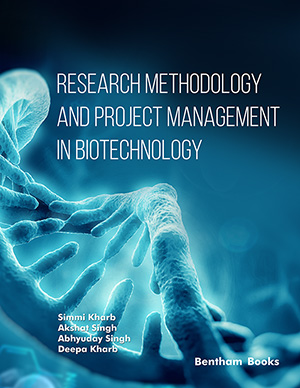
Abstract
Peptides have emerged as important therapeutics that are being rigorously tested in angiogenesis-dependent diseases due to their low toxicity and high specificity. Since the discovery of endogenous proteins and protein fragments that inhibit microvessel formation (thrombospondin, endostatin) several peptides have shown promise in pre-clinical and clinical studies for cancer. Peptides have been derived from thrombospondin, collagens, chemokines, coagulation cascade proteins, growth factors, and other classes of proteins and target different receptors. Here we survey recent developments for anti-angiogenic peptides with length not exceeding 50 amino acid residues that have shown activity in pre-clinical models of cancer or have been tested in clinical trials; some of the peptides have been modified and optimized, e.g., through L-to-D and non-natural amino acid substitutions. We highlight technological advances in peptide discovery and optimization including computational and bioinformatics tools and novel experimental techniques.
Keywords: Angiogenesis, animal model, computational biology, inhibitor, in vitro model, peptidomimetics, tumor vasculature, tumor, angiogenesis-dependent diseases, microvessel formation, cancer, anti-angiogenic peptides, non-natural amino acid substitutions, anti-cancer agents
Current Pharmaceutical Biotechnology
Title: Anti-Angiogenic Peptides for Cancer Therapeutics
Volume: 12 Issue: 8
Author(s): Elena V. Rosca, Jacob E. Koskimaki, Corban G. Rivera, Niranjan B. Pandey, Amir P. Tamiz and Aleksander S. Popel
Affiliation:
Keywords: Angiogenesis, animal model, computational biology, inhibitor, in vitro model, peptidomimetics, tumor vasculature, tumor, angiogenesis-dependent diseases, microvessel formation, cancer, anti-angiogenic peptides, non-natural amino acid substitutions, anti-cancer agents
Abstract: Peptides have emerged as important therapeutics that are being rigorously tested in angiogenesis-dependent diseases due to their low toxicity and high specificity. Since the discovery of endogenous proteins and protein fragments that inhibit microvessel formation (thrombospondin, endostatin) several peptides have shown promise in pre-clinical and clinical studies for cancer. Peptides have been derived from thrombospondin, collagens, chemokines, coagulation cascade proteins, growth factors, and other classes of proteins and target different receptors. Here we survey recent developments for anti-angiogenic peptides with length not exceeding 50 amino acid residues that have shown activity in pre-clinical models of cancer or have been tested in clinical trials; some of the peptides have been modified and optimized, e.g., through L-to-D and non-natural amino acid substitutions. We highlight technological advances in peptide discovery and optimization including computational and bioinformatics tools and novel experimental techniques.
Export Options
About this article
Cite this article as:
V. Rosca Elena, E. Koskimaki Jacob, G. Rivera Corban, B. Pandey Niranjan, P. Tamiz Amir and S. Popel Aleksander, Anti-Angiogenic Peptides for Cancer Therapeutics, Current Pharmaceutical Biotechnology 2011; 12 (8) . https://dx.doi.org/10.2174/138920111796117300
| DOI https://dx.doi.org/10.2174/138920111796117300 |
Print ISSN 1389-2010 |
| Publisher Name Bentham Science Publisher |
Online ISSN 1873-4316 |
Call for Papers in Thematic Issues
Artificial Intelligence in Bioinformatics
Bioinformatics is an interdisciplinary field that analyzes and explores biological data. This field combines biology and information system. Artificial Intelligence (AI) has attracted great attention as it tries to replicate human intelligence. It has become common technology for analyzing and solving complex data and problems and encompasses sub-fields of machine ...read more
Latest Advancements in Biotherapeutics.
The scope of this thematic issue is to comprehensively explore the rapidly evolving landscape of biotherapeutics, emphasizing breakthroughs in precision medicine. Encompassing diverse therapeutic modalities, the issue will delve into the latest developments in monoclonal antibodies, CRISPR/Cas gene editing, CAR-T cell therapies, and innovative drug delivery systems, such as nanoparticle-based ...read more
Machine Learning and Artificial Intelligence for Medical Data Analysis and Human Information Analysis in Healthcare
The intersection of machine learning (ML) and artificial intelligence (AI) with the pharmaceutical industry is revolutionizing traditional paradigms in drug discovery and development. These technologies have introduced innovative approaches to analyzing complex datasets and predicting chemical properties, leading to more efficient identification and optimization of drug candidates. By employing sophisticated ...read more
 36
36
- Author Guidelines
- Graphical Abstracts
- Fabricating and Stating False Information
- Research Misconduct
- Post Publication Discussions and Corrections
- Publishing Ethics and Rectitude
- Increase Visibility of Your Article
- Archiving Policies
- Peer Review Workflow
- Order Your Article Before Print
- Promote Your Article
- Manuscript Transfer Facility
- Editorial Policies
- Allegations from Whistleblowers
Related Articles
-
The Application of Stimuli-responsive Nanocarriers for Targeted Drug Delivery
Current Topics in Medicinal Chemistry Physiology and Therapeutics of Vascular Endothelial Growth Factor in Tumor Immunosuppression
Current Molecular Medicine Evaluation of Gene and Cell-Based Therapies for Cardiac Regeneration
Current Stem Cell Research & Therapy Recent Advances in the Selection of Cancer-Specific Aptamers for the Development of Biosensors
Current Medicinal Chemistry Diabetes and Pancreas: Why So Difficult? Potential Mechanisms of Elevated Serum Pancreatic Enzymes
Current Medicinal Chemistry Emerging Molecular Functions of MicroRNA-9: Cancer Pathology and Therapeutic Implications
Anti-Cancer Agents in Medicinal Chemistry Radiogenetic Therapy: Strategies to Overcome Tumor Resistance
Current Pharmaceutical Design A Squamous Cell Gallbladder Carcinoma: A Case Report and Literature Review
New Emirates Medical Journal Notch Signaling: A Potential Therapeutic Target in Prostate Cancer
Current Cancer Drug Targets Endometriosis and Perinatal Outcome - A Systematic Review of the Literature
Current Women`s Health Reviews Drugs Interfering with Apoptosis in Breast Cancer
Current Pharmaceutical Design An Overview on the Role of miR-451 in Lung Cancer: Diagnosis, Therapy, and Prognosis
MicroRNA Botulinum Toxin a in Prostate Disease: A Venom from Bench to Bed-Side
Current Drug Delivery Epigenetic Remodeling of Chromatin Architecture: Exploring Tumor Differentiation Therapies in Mesenchymal Stem Cells and Sarcomas
Current Stem Cell Research & Therapy HDACs and HDAC Inhibitors in Urothelial Carcinoma – Perspectives for an Antineoplastic Treatment
Current Medicinal Chemistry Smart Synthetic Polymer Nanocarriers for Controlled and Site-Specific Drug Delivery
Current Topics in Medicinal Chemistry 3,7-Bis(dialkylamino)phenothiazin-5-ium Derivatives: Biomedical Applications and Biological Activity
Current Drug Targets Nanomaterials in the Pharmaceuticals: Occurrence, Behaviour and Applications
Current Pharmaceutical Design Addressing the Challenge: Current and Future Directions in Ovarian Cancer Therapy
Current Gene Therapy Lipid Management for the Prevention of Cardiovascular Disease
Current Pharmaceutical Design
























